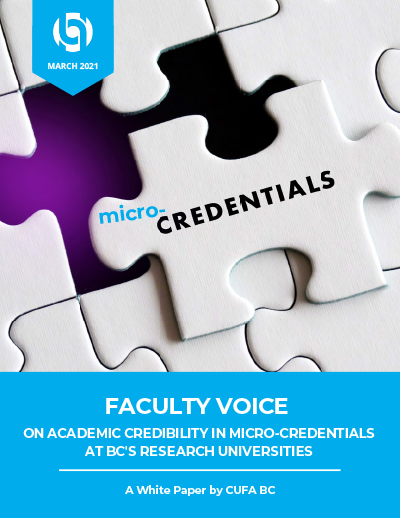Micro-credentials are small units of educational achievement with a variety of pathways and purposes. Having long existed in industry, micro-credentials are now emerging as a new education strategy in the post-secondary sector.
Institutions are increasingly using non-credit micro-credentials to allow students to gain new skills, pivot to new fields, and access education outside of formal programs. Micro-credentials also represent an alternative revenue stream for universities in the face of declining government funding, enrolment pressures, and economic uncertainty. Yet critics are cautious that for-credit micro-credentials may threaten the integrity of established degrees and academic missions.
We believe that micro-credentials can be successfully introduced within the post-secondary sector — provided it’s done strategically and with proper oversight.
Download our paper to explore:
- How micro-credentials are currently being used in academia and the workforce
- The benefits and potential pitfalls of micro-credentials
- The critical role of faculty and university senates in the success of micro-credentials
- Effective strategies for applying micro-credentials within the post-secondary sector
“If such programming is to come to higher education and be successful, then it has to fit within the academic mission and address real world market needs.”
- Excerpt

